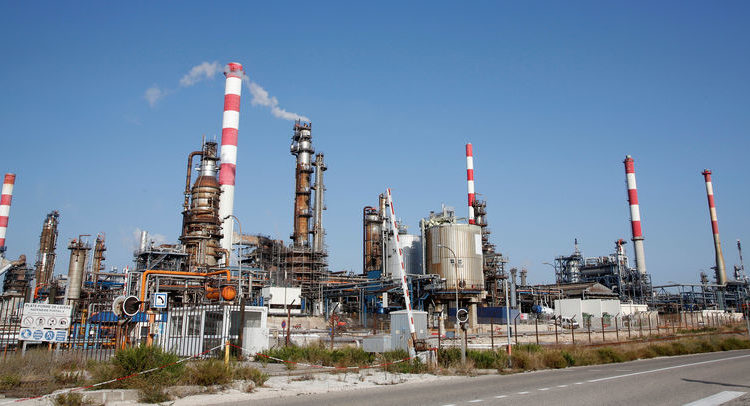Oil falls below $64 as source says Saudis near full output restart
By Alex Lawler
LONDON (Reuters) – Oil fell below $64 a barrel on Monday, reversing an earlier gain, after a source said Saudi Arabia would fully restore oil output lost after attacks on its facilities faster than some traders expected.
The source, briefed on the latest developments, also told Reuters Saudi Arabia has already restored around 75% of crude output lost. Oil was up earlier in the session, supported by scepticism over how fast output would come back.
Global benchmark Brent crude fell 30 cents to $63.98 a barrel at 1003 GMT, having earlier risen as high as $65.50. U.S. West Texas Intermediate (CLc1) dropped 35 cents to $57.74.
Brent has gained about 18% this year, helped by a supply-limiting pact led by the Organization of the Petroleum Exporting Countries, although concern about slowing economic growth has limited the advance.
A survey on Monday showed euro zone business growth stalled this month, and the latest U.S.-China talks have failed to produce signs of a breakthrough in the two countries’ prolonged trade dispute.
“Investors remain unconvinced that a trade deal is about to see the light of day soon,” said Hussein Sayed, analyst at broker FXTM. “That’s likely to put a cap on any further gains in risk assets.”
Tension in the Middle East has escalated since the Saudi attack earlier this month, also lending oil some support. The Pentagon has ordered additional U.S. troops to be deployed in the Gulf region to strengthen Saudi Arabia’s air and missile defenses.
Britain believes Iran was responsible for the attack and will work with the United States and European allies on a joint response, Prime Minister Boris Johnson said on Monday. The United States and Saudi Arabia have already blamed Iran, which denies responsibility.
The attack has refocused investor attention on the prospect of other supply disruptions in other OPEC producers like Nigeria, Libya and Venezuela. Investors had been less concerned about supply risks due to ample supplies.
“The geopolitical risk premium has returned with a vengeance and supply-side developments have been thrust back into the spotlight,” Stephen Brennock of oil broker PVM said.
“While Saudi oil facilities smolder, the potential for fresh outages in Nigeria, Libya and Venezuela continues to hang over the market.”

